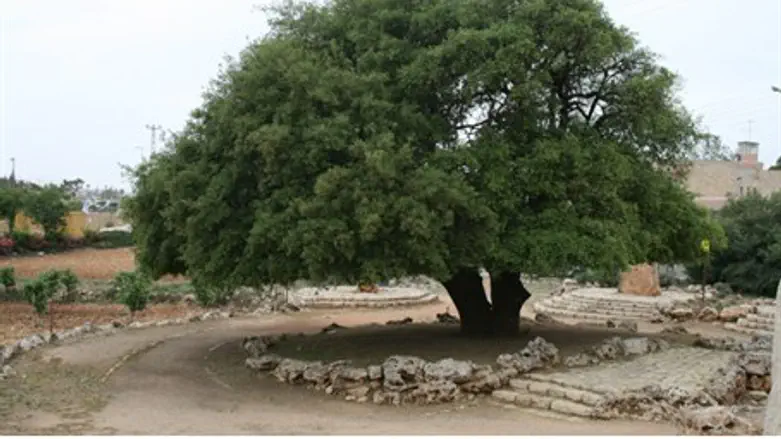
For decades the region of Gush Etzion, ten minutes south of Jerusalem, has been home to memorials to the more than 100 Jews who were killed there in 1948, when the area was overrun by the invading Arab Legion aided by local villagers.
Kfar Etzion was the decisive battle. Mothers and children had been evacuated to Jerusalem when the defenders realized that the beleagured Hagana could not send forces to defend them. They never saw their fathers and husbands again. After a heroic battle - a day before Israel's independence was declared - the surrendering defenders of Kfar Etzion were killed in cold blood by the Arab forces, despite their raising a white flag. Only 4 survived.
Now residents of the region have created a new memorial for the 21st century: a professionally produced film that portrays the region’s history, including the Jewish settlement in the 20th century, and the brutal destruction of that settlement during the war.
The project was the brainchild of those whose parents were among those who fell in battle, explained Shani Simkovich, director of the Gush Etzion foundation. “The vision of a video project commemorating the fallen of Gush Etzion in 1948 first began 20 years ago, among children of Kfar Etzion who wanted a memorial for their parents,” she told Arutz Sheva.
“The current memorial structure is in poor condition, and is not suited to the technology or the language of today’s youth,” she continued.
“We invested hundreds of thousands of shekels in a new movie, with professional actors, in order to teach generations to come,” she explained. The total cost of the memorial project, which will include renovating a building to house the project, will be roughly four million dollars.
Money for the project came from donors in the United States, “not all of them Jews,” she said. “The donors want to be connected to part of the homeland in the land of Israel and to the nation of Israel, most aren’t Jewish or religious,” she explained.
“There are currently a lot of visitors coming, both from inside [Gush Etzion] and from without, soldiers and youth. We hope that when we get a new building, everyone will come see and learn and Gush Etzion,” Simkovich said.